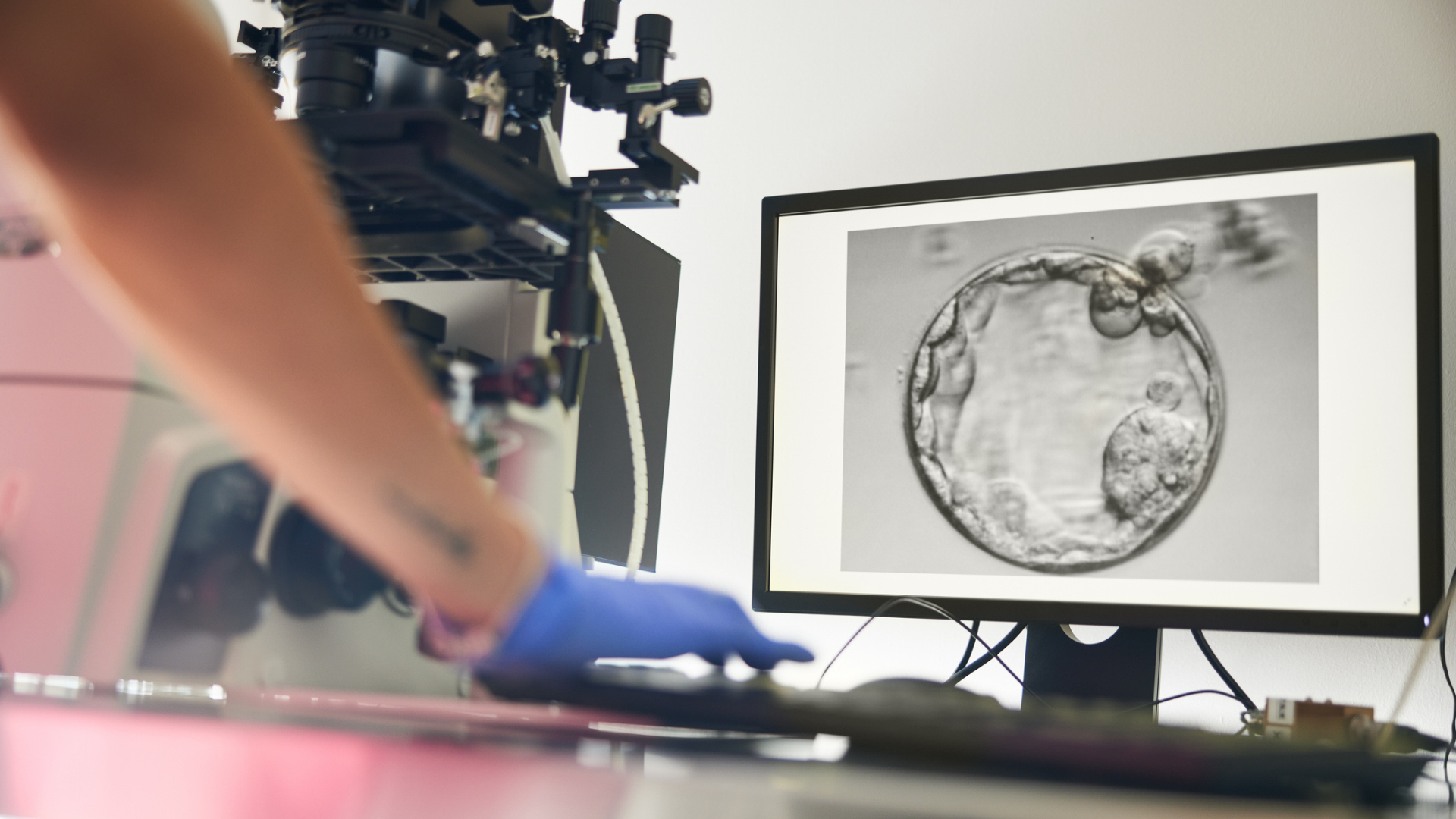
Artificial intelligence is gradually taking over more and more facets of our everyday lives. People are using it as a substitute for speaking with a therapist. AI is being used to create music. And increasingly, people are relying on the technology to provide romantic companionship.
While many of these uses of AI are cause for concern for people who fear we might be losing touch with reality, there are some ways in which AI is being used that seem altogether positive, like the Mexican couple who welcomed the first baby ever conceived using AI.
Edna and Tony had infertility issues.
The dream Edna, 42, and Tony, 45, shared of one day having a family felt like it might be slipping away when doctors diagnosed the couple with infertility issues, Newsweek reports. But in 2023, they learned about a study led by Conceivable Life Science and Hope IVF, a private fertility clinic in Mexico City. The study found that it was possible to use robots to perform an intracytoplasmic sperm injection. The procedure, known as an ICSI, creates an embryo outside of the human body.
The technology is more precise and consistent than human beings.
Using AI for this injection offers more control, more precision, and consistent treatment. Dr. Alejandro Chavez-Badiola, chief medical officer at Conceivable Life Sciences, used two hypotheticals to highlight the benefits of this technology.
“Am I the lucky patient who is going to be treated by the best embryologist in the world at 8 a.m. after a cup of coffee and with a smile on their face, fully focused,” he asked hypothetically. “Or am I going to be the unlucky patient who is going to be treated by the best embryologist in the world at 1 p.m. when they’re about to inject their 70th egg, thinking about lunch and having just received a distressing phone call from their partner.”
Using mathematical algorithms, robots will eventually be able to perform the surgery better than humans.
‘Its purpose is to serve mankind,’ Tony said of AI use.
The couple, who used their middle names to maintain their privacy, said that while family members were worried about the couple turning their fertility over to AI, Edna and Tony were not concerned.
“Although it can be directed to other purposes like weapons or other negative aspects, I feel like it should be applied on a daily basis, because well done, its purpose will be at the service of mankind,” Tony said.
For now, there will always be a human being to preside over the operations. “By being more optimal and efficient, I feel like it will reduce the amount of attempts and the necessity of medications,” Edna said.
There are benefits to the AI.
In their journey to have children, Edna and Tony went through several attempts to conceive. The AI-controlled ICSI was the procedure that allowed them to become parents to 7-month-old Luis. The study found that the robot-powered ICSI resulted in a 51% success rate, which is consistent with industry standards.
Researchers did find that embryos created with this system had a developmental potential as good or better than embryos created by humans. The blastocysts were stronger when they were transferred from the embryo transfer catheter to the uterus.
The couple plans to tell Luis about his conception.
When he’s old enough, the couple plans to share Luis’ origins with him. “There’s a lot of ignorance and certain concerns about technology, but we will explain gladly to our son.”
For now, they have a message for other couples who may be struggling with fertility like they were. “We were fortunate to be selected over other candidates for this first treatment, and we feel blessed,” they said. “We encourage all those couples who are on the journey to becoming parents to not abandon their dreams and hopes.”



